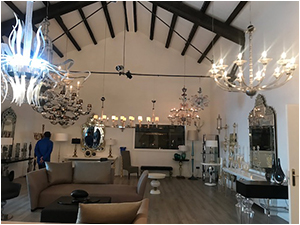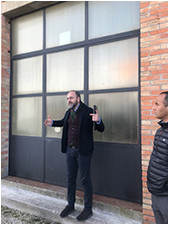Visiting one of Italy’s oldest, most respected hand blown glass factories
A group of ten senior officials holding different agriculture portfolios found time to visit Murano island in the midst of a hectic schedule of farm visits, meeting organic farmers, interacting with organic certification experts and walking through/ observing wholesale and retail fresh produce markets over a period of eight days. The study tour entailed visits to Rome and Venice in Italy and Barcelona in Spain in February, 2020.
There is hand blown glass that comes from the glass factories of France, Germany, Russia and Italy. And then there is hand blown glass that comes from 23 generations of the Seguso family of Murano in Italy. Proudly displaying their seal that says “since 1397” there is much to learn from and be inspired from a brief visit and interaction with the current patriarch and his sons. At the rear end of one of the seven Murano islands in Venice, the solid iron gate of their inconspicuous house cum factory opens to the inside of an intriguing little reception area that leads to an alley lining objects de art from 14th century onwards, taking you through an open courtyard where some of the ingredients of their glass recipes sit as if they always belonged there and bringing you right to the centre of the action where at the Seguso furnace, master craftsman blow glass with the most amazing precision, tender love and creative excellence. The uninterrupted lineage of one of the world’s most respected glass making families, they have transform ordinary glass into works of exquisite art that are sign of continuity and perspective that makes them both timeless and priceless. Their chandeliers, lights, sconces, lamps, furniture adorn the world’s best known churches, synagogues, basilicas, museums, restaurants, homes of billionaires, stores of designer brands like Prada and Ralph Lauren and hotels amongst others.
Five clear lessons that emerge from an interaction with the current generation’s, GianAndrea Seguso Bellotto and his father:
- Preserving heritage and culture without adulterating it with the so-called modern tenets of commercialisation
- Using technology only where necessary and valuing the human input
- Pride in what they stand for and belief in being among the best
- An exclusivity that comes from quality, workmanship and the highest level of design that is contemporarised to suit the current times
- Building relationships and merging experience with customisation to suit each order



